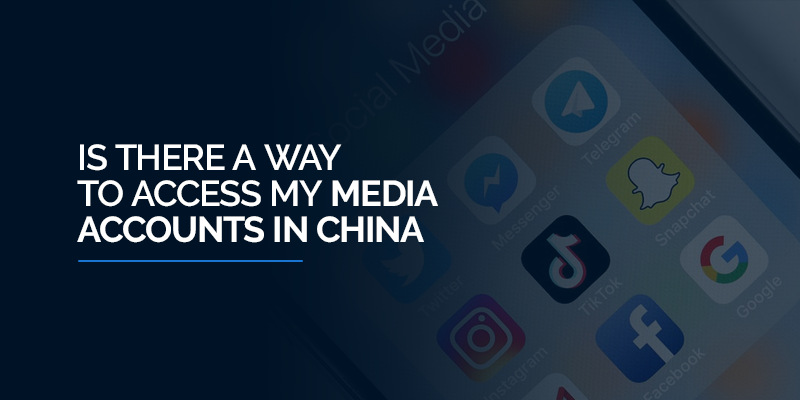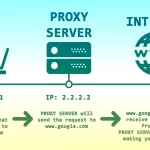This is a tough question. However, there is always a solution. First, before moving ahead, let us understand why China is actively blocking access to international media accounts, apps, streaming services, and more.
Table of Contents
Why is online censorship at large in China?
According to Amnesty International studies, you will find around 30,000–50,000 internet surveillance authorities arranged by the Chinese government to monitor and enforce severe internet laws. You will find more than 8000 websites blocked in China to date. By why? What is the reason behind such harsh laws? Yes, other countries around the world enforce online censorship laws, but nothing compares to China. Visit here
It is because the Chinese government deems online censorship as the best way to prevent and eliminate risks in their ideological sense of the internet.
There was even a document released back in June 2010, which stated that these laws and regulations restrict the fluctuation or spreading of information that contains content that undermines the power of the state, eroding national unity or breaching the national honor and interests.
It further states that anyone traveling to China or foreign business representatives in China can use the internet freely, as long as it abides by the Chinese government’s laws. However, there is not much that can be used freely with the sad state of internet freedom. Visit here
But, what is the solution? Is there a way around these restrictions?
Usually, the most common and practical way to unblock numerous services in China is by using the best VPN. A Virtual Private Network allows users to curb geo-blocks secured by the Great Firewall of China.
It does not matter if you are a foreign ex-pat traveling to China or a local, all will experience these restrictions. You will find services like Netflix, BBC iPlayer, WhatsApp, YouTube, and more actively blocked there. The sad part is that informational platforms like Wikipedia are partially blocked too. Most users connect to a VPN to bypass these laws.
However, not just any VPN will work. For instance, most users require Netflix access, since it is currently the most popular streaming service. Studies show that users use NordVPN for Netflix and other services. Just because one VPN works for a particular service, does not necessarily mean it will work for another. It would help if you were extra careful while choosing a VPN for unblocking international services in China.
There is another issue
Because VPNs got so popular in China, the Chinese government is doing everything to track down these providers, restricting their access points or blacklisting multiple VPN IP addresses. It makes choosing the best VPN a whole lot more difficult.
China only allows access to a VPN, only if these providers give the Chinese government access to its servers.
The thing is, sure the Chinese government is doing its users right by limiting access to specific illegal platforms that a VPN can offer access to, but, what about other essential services? WhatsApp is encrypted and is required for communicating for free with the rest of the world. China blocked access to it because of its high encryption levels and replaced it with a Chinese version called “WeChat.”
There are circumstances when VPNs aren’t easily accessible to Chinese residents or international travelers within the country. So, how else are you to unblock media accounts or services in China? There are two other ways, apart from a VPN; take a look below!
A Proxy
A Proxy is one of the easiest ways to access a few blocked websites if you are interested in only simple or basic usage. Using a proxy in China, you’ll be able to bypass multiple geo-blocked services through your browser.
Compared to a VPN, a proxy isn’t as safe. That’s one of the most significant flaws. It doesn’t work the same as a VPN and doesn’t offer servers that you can connect with to mask your IP. However, the reason I mentioned primary usage, a proxy will help shield your physical location, giving you a little online privacy if you are trying to unblock websites in China.
Another drawback is that a proxy doesn’t offer the same or any encryption. That’s where the risk factor comes into par. You’ll only be able to use it via your browser and not on separate downloaded apps. Yes, a proxy helps access blocked services in China to an extent, but you’ll require an extra layer of protection when using their internet. That’s something a proxy doesn’t offer. It is why using a proxy is just for those that are only looking for basic online surfing, with a bit of protection.
TOR
TOR makes another great option if you’re not feeling up to using a VPN. It is free, open-source software that comes with great encryption and unblocking abilities. TOR is not the same as a VPN that offers multiple servers to access platforms or mask your IP, but it works a little similar.
It operates using three nodes called “Entry node, middle node, and exit node.” These nodes are like layers, where user data is secured from one node to the next, without each endpoint knowing the end results. For instance, the entry node identifies the entry data but doesn’t know the end product or destination managed by the exit node.
The only downside to TOR, in my opinion, is its speeds. Using TOR is said to substantially slow down speeds, which is something a VPN can prevent. Using TOR will help keep your identity anonymous, mask your online traffic, and your IP. It shields all data, passing it through its different layers.
However, just like a VPN, TOR, too, is not 100% secure in China. The Chinese government has implemented laws against the use of VPNs and TOR alike. It all depends on luck!
You can access TOR by contacting its developers ([email protected]), asking them for a link to it. When you download TOR, you can simultaneously run the TOR app with Obfsproxy. This will allow all internet traffic to blend in with regular traffic, avoiding being detected by the Chinese government.
The added perk? If you already use a VPN in China, you can connect TOR with a VPN for an extra protection layer. It acts like a Double VPN feature, but the speeds will remain slower than usual.
To conclude
China is a country where online censorship and geo-blocks will continue to exist. However, that doesn’t mean the public can’t do anything about it. There are always ways to bypass these issues and look for ways to make the internet safe again. Yes, a VPN might not work for some, but there are two other methods you can try, which I’ve highlighted above.
My first preference would be a VPN, not because it is the best option as no software is 100% reliable, but because a VPN is safer. TOR would be my second option as it comes with great encryption, but slower speeds and my last resort would be a proxy. As I’ve mentioned above, a proxy is only reliable if you are only trying to access a few emails or attempt to unblock a website or even YouTube. However, that’s just my two cents on the matter. All-in-all, it doesn’t hurt to try them all!











